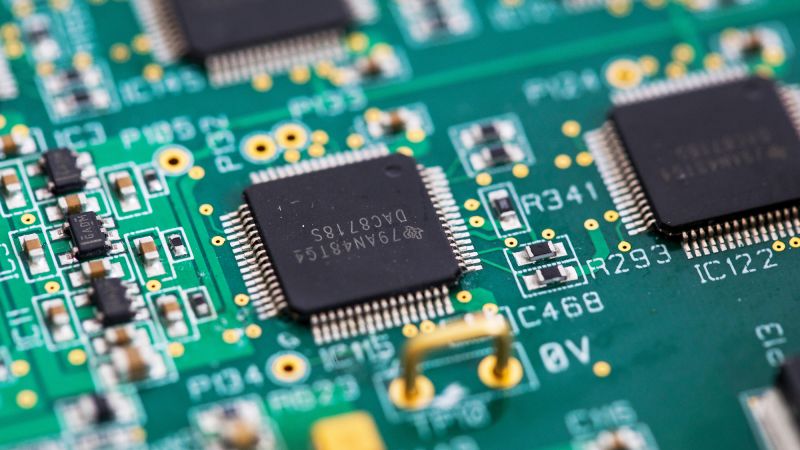Texas Instruments (TI), a leading name in the semiconductor industry, recently made headlines with a substantial investment announcement exceeding $60 billion aimed at bolstering semiconductor manufacturing in the United States. This significant move comes during an era of increasing pressure from former President Donald Trump, who has been advocating for tech giants to establish their manufacturing bases domestically, pushing companies like Apple and Samsung to reconsider their production strategies.
The funds allocated by TI will support the establishment of seven semiconductor fabrication plants located in Texas and Utah. The anticipated outcome of this investment is the creation of over 60,000 jobs, which TI heralded in a press release emphasizing the importance of domestic chip production. The company noted its collaboration with the Trump administration to ensure that critical chips—integral to technologies ranging from smartphones to data centers and automobiles—are manufactured within U.S. borders. This initiative aligns with the broader effort led by the White House to maintain American technological superiority over China while simultaneously revitalizing the domestic manufacturing landscape.
TI is no stranger to collaboration with significant players in the tech and automotive sectors, having built partnerships with renowned companies such as Apple, Nvidia, and Ford. The company proudly claims that its investment constitutes the largest financial commitment to foundational semiconductor manufacturing in U.S. history, highlighting the potential implications for both the industry and the national economy.
U.S. Commerce Secretary Howard Lutnick expressed confidence in TI’s initiative, stating in a press release that President Trump has prioritized the enhancement of semiconductor manufacturing within the country. He framed the partnership with TI as one that will strengthen the U.S. chip manufacturing landscape for decades, contributing positively to domestic job growth and technological advancement.
This announcement follows a series of significant investments by American companies aimed at reshaping the domestic manufacturing sector, a narrative frequently reinforced during Trump’s administration. Earlier this month, General Motors revealed plans to invest $4 billion to increase its U.S. production capabilities, while Apple announced a commitment of $500 billion to expand its American facilities. Additionally, tech giants Oracle, OpenAI, and SoftBank unveiled plans to form a new entity named Stargate, aimed at enhancing artificial intelligence infrastructure in the U.S.
Despite the optimistic outlook, it is essential to recognize that some of these companies, including Apple and TSMC, were already expanding their U.S. operations prior to Trump’s second term. The administration’s focus on reviving U.S. manufacturing has been a hallmark of Trump’s political agenda, with a particular emphasis on implementing tariffs to encourage domestic production and reduce reliance on foreign goods. During the initial months of his second term, Trump launched an aggressive tariff strategy targeting many products produced overseas, arguing that this would create jobs domestically and address perceived inequities in international trade.
In a somewhat unexpected turn, the Trump Organization has entered the tech space with plans to introduce a new smartphone branded as “Trump Mobile,” set to launch in September. The organization claims that the phone will be “proudly designed and built” in the United States. However, experts warn that manufacturing complex devices such as smartphones in the U.S. presents numerous challenges. The country currently lacks not only the skilled labor force required for such production but also the essential components needed for assembly.
A critical aspect of Trump’s presidency has been the ongoing competition with China in the realm of technology. This rivalry intensified following the rise of Chinese startup DeepSeek, which made waves in Silicon Valley and on Wall Street with its potent yet cost-effective artificial intelligence models. Acknowledging the importance of maintaining a technological edge, Vice President JD Vance declared during the Artificial Intelligence Action Summit held in Paris that the United States would remain the leader in AI, vowing to implement policies that would ensure the nation retains its competitive advantage in this crucial sector.
In summary, Texas Instruments’ monumental investment in semiconductor manufacturing underscores a significant shift toward enhancing domestic production capabilities, closely intertwined with the political currents steering U.S. technology and trade policies under the Trump administration. The complexities of rebuilding the U.S. manufacturing landscape are evident, with both opportunities and challenges on the horizon.



